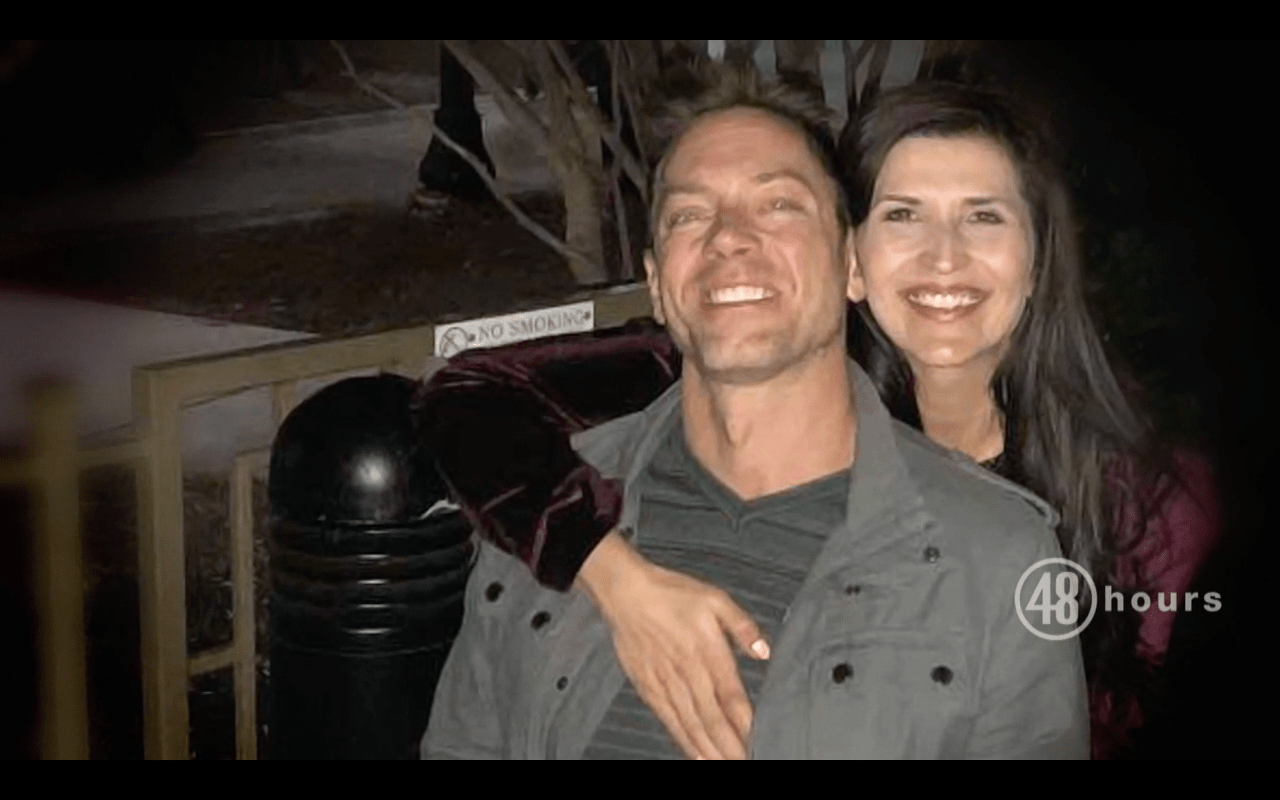Orlando Wife Murder: 20/20's Shanti Cooper Case & Husband's Secrets
Could a dream of reality television stardom lead to a fatal tragedy? The 2018 murder of Shanti Cooper-Tronnes in Orlando, Florida, and the subsequent pursuit of her husband, David "Dave" Tronnes, unveils a chilling tale of hidden secrets and a marriage fractured by ambition and betrayal.
The idyllic facade of their Delaney Park home shattered on April 24, 2018, when the police arrived at the scene. Initially, the investigators were faced with a puzzling scenario, the possibility of a robbery gone awry. However, as the investigation unfolded, the evidence painted a far more sinister picture, revealing a web of deceit and ultimately, a calculated act of violence. The authorities soon shifted their focus towards Dave Tronnes, then 52 years old, whose account of events began to unravel under scrutiny.
| Category | Details |
|---|---|
| Full Name | Shanti Cooper-Tronnes |
| Date of Birth | (Information not publicly available) |
| Date of Death | April 24, 2018 |
| Place of Death | Delaney Park Home, Orlando, Florida |
| Marital Status | Married to David "Dave" Tronnes |
| Children | Jackson Cooper (Son) |
| Profession/Career | Successful Businesswoman (Specifics of business not widely publicized) |
| Known For | Victim of a high-profile murder case. The case gained attention due to the circumstances surrounding her death and the subsequent legal proceedings against her husband. |
| Key Events |
|
| Legal Proceedings | Dave Tronnes was charged with murder. Trial concluded in October 2023, with a guilty verdict. |
| Reference | ABC News - 20/20: A Killer Renovation |
The investigation quickly moved beyond the initial assumption of a random act. Details emerged that suggested a far more personal and calculated crime. Detectives started to dissect Tronness version of events, uncovering inconsistencies and red flags that pointed toward his culpability. The case took a dark turn when evidence suggested that the couple's involvement in a home renovation television show, "Zombie House Flipping," might have played a significant role in the events leading up to Shanti's death.
For Shanti's young son, Jackson Cooper, the legal proceedings against his father were a harrowing experience. He was just eight years old when his mother was tragically murdered. Now twelve, Jackson has been forced to confront the devastating reality of his loss in the courtroom, facing the man accused of taking his mother's life. The emotional weight of the trial and the trauma associated with the loss continues to affect the child.
The prosecution presented a compelling narrative, arguing that the murder stemmed from Shanti's refusal to participate in the "Zombie House Flipping" show. Prosecutors contended that the pressure and marital strain created by the opportunity for reality TV fame, coupled with Shantis reluctance, fueled a fatal conflict. The case brought to light the dark side of ambition, the potential for jealousy, and the disastrous consequences that can arise within the confines of a seemingly ordinary home.
The autopsy report revealed that Shanti Cooper-Tronnes did not die from a fall in the bathtub, as initially claimed. Instead, the medical examiner determined the cause of death to be strangulation and blunt force trauma to her head. The evidence proved the initial narrative offered by Dave Tronnes was a fabrication. The meticulous forensic investigation and the testimony of medical experts were instrumental in revealing the true nature of the crime and dismantling the defense's version of events.
The couples Delaney Park home, once a symbol of their success, became the epicenter of a brutal crime scene. The investigation unearthed a series of unsettling discoveries, starting with discrepancies in Daves statement to the police. The detectives meticulously analyzed every detail, from the condition of the bathroom to the accounts provided by neighbors, searching for clues that could unravel the mystery.
Days before her death, Shanti reportedly walked out of a meeting with producers of the "Zombie House Flipping" show, a detail that the prosecution highlighted during the trial. This decision, the prosecution alleged, served as the catalyst for the escalating tensions within the marriage. The evidence presented in court showed that the couple's dreams for a lavish lifestyle, fueled by the potential of reality television, had turned toxic.
One of the most crucial pieces of evidence introduced during the trial was a set of bloody sheets. Dave Tronness original attorney revealed the existence of these sheets nearly a year after Shanti's death. The defense team later recovered these from the apartment, suggesting a struggle and further implicating Dave in the crime.
The trial, which took place in October 2023, saw the prosecution build a case piece by piece, dismantling the defense's arguments. They used physical evidence, witness testimonies, and expert analyses to paint a clear picture of what happened in the couples home on the night of April 24, 2018. The jury, after considering all the evidence, delivered a verdict of guilty.
The legal proceedings also highlighted the devastating impact on the family, particularly Shantis son, Jackson. He was present in court as the details of his mother's murder were revealed. The trauma and grief experienced by the family became central to the narrative, exposing the human cost of Dave Tronness actions.
The case of Shanti Cooper-Tronnes serves as a stark reminder of the darkness that can lurk behind closed doors, even in the most affluent neighborhoods. The pursuit of a seemingly glamorous life through reality television, in this instance, became a catalyst for a tragedy that forever changed the lives of those involved. The guilty verdict rendered in October 2023 brought some measure of justice, but the emotional scars and the memory of Shanti Cooper-Tronnes will remain.
The investigation and the ensuing trial underscored the critical role of forensic science, meticulous detective work, and the power of the legal system in unraveling complex cases and holding perpetrators accountable. The case also sparked a discussion about the potential dangers of the relentless pursuit of fame and fortune, particularly when fueled by the allure of reality television. The story of Shanti Cooper-Tronnes serves as a cautionary tale, a testament to the fragility of life, and the devastating consequences of betrayal.
The investigation into Shanti Cooper-Tronnes's death revealed a series of troubling discoveries. From the initial call to 911, the story of a tragic accident started to crumble under scrutiny. The police found inconsistencies in Daves account, leading to a full-scale investigation that unearthed the truth. The initial narrative quickly fell apart as the reality of the crime came to light.
The case brought to light the complexities of domestic relationships and how aspirations can sometimes lead to devastating outcomes. The desire to attain a certain lifestyle and the pressure that came with it might have contributed to the fatal events. This case is a reminder that success can be a double-edged sword, especially when the pursuit of it undermines fundamental human values such as respect and trust.
The legal battle that followed the death of Shanti Cooper-Tronnes was intense and emotionally charged. The trials focus was on the evidence that revealed a story far different than what was initially presented. The prosecutors worked to present a clear and compelling case, using various forms of evidence to prove the suspects guilt. The defense tried to challenge these claims, but the weight of the evidence and expert testimony ultimately led the jury to its verdict.
The involvement of the "Zombie House Flipping" show added another layer to the investigation. The details related to the show, and the couple's plans to participate in it, added a unique dimension to the case. The idea of fame and fortune through reality television turned into a tragic element, which complicated the case.
The legacy of Shanti Cooper-Tronnes remains as a story of unfulfilled potential. Her death is a stark reminder of the need for vigilance and care within relationships. The outcome of the legal case served justice, but it did not eliminate the loss felt by those who knew and loved her. The case will continue to prompt reflection on the interplay of ambition, relationships, and the pursuit of the American dream.


